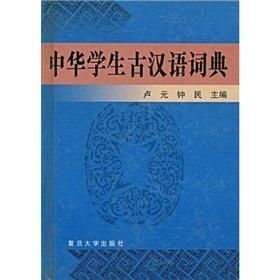Exploring Ancient Chinese Language: Its Impact and Evolution into Modern Times delves into the rich linguistic heritage of China, offering insight into how this ancient form of communication has shaped not only modern Chinese dialects but also the study of languages and cultures worldwide. This comprehensive analysis brings to light the unique features, historical significance, and enduring legacy of ancient Chinese, providing readers with a deeper understanding of its influence on contemporary language and culture.

The Origins and Characteristics of Ancient Chinese
Ancient Chinese, or Classical Chinese, once the lingua franca of China, is vastly different from the Mandarin we know today. Its rigorous syntax, brevity, and the reliance on context rather than grammar for meaning, challenge even the most adept linguists. Characterized by its logographic writing system, where each symbol represents a word or a morpheme, it encapsulates a complexity that embodies the rich cultural tapestry of ancient China. The evolution of its script, from oracle bone inscriptions to brush strokes on bamboo and silk, mirrors the technological and philosophical advancements of Chinese civilization.
The Influence of Ancient Chinese on Modern Dialects
The leap from Ancient to Modern Chinese is monumental, showcasing a profound transformation in phonology, syntax, and vocabulary. Yet, the ancient language's legacy endures, subtly permeating various modern dialects. Terms and phrases from Classical Chinese still find their way into contemporary usage, especially in formal, academic, and literary contexts. This enduring presence highlights not only the language's adaptability but also its foundational role in the development of the diverse linguistic landscape of modern China.
Ancient Chinese Contributions to Linguistics and Philology
The study of Ancient Chinese contributes significantly to the fields of linguistics and philology, providing insights into the cognitive and social aspects of language evolution. Philologists, by dissecting ancient texts, unravel the nuances of early Chinese society, its beliefs, customs, and governance. This exploration extends beyond the confines of China, offering a comparative lens through which to view the development of writing systems and languages across cultures, enriching our understanding of human communication and its evolution throughout history.
Learning and Preserving Ancient Chinese
Despite its perceived obscurity, there is a growing interest in learning Ancient Chinese, driven by a desire to connect with China's storied past. Educational institutions and digital platforms are increasingly providing resources for this endeavor, making ancient texts accessible to both scholars and enthusiasts alike. This resurgence of interest not only facilitates cultural preservation but also fosters a deeper appreciation for the complexities and beauty of ancient linguistic expression.
The Future of Ancient Chinese Studies
The future of Ancient Chinese studies looks promising, with interdisciplinary approaches blending traditional philology with digital humanities to unlock new understandings of ancient texts. As technology advances, methods such as digital text analysis and computational linguistics offer fresh perspectives on classical literature, potentially revolutionizing our interpretation of ancient works. This digital renaissance, while broadening the accessibility of ancient texts, underscores the timeless relevance of Ancient Chinese in the digital age.
In conclusion, the study of Ancient Chinese offers invaluable insights into the linguistic and cultural heritage of China. Its evolution from a complex, logographic script to influencing modern Chinese dialects and literary forms underscores its significance. By exploring its origins, characteristics, and contributions to linguistics and philology, we gain not only a deeper understanding of China's rich history but also an appreciation for the dynamic nature of language. As we continue to explore and preserve Ancient Chinese, we ensure that its legacy endures for future generations to cherish and learn from.












评论区
提示:本文章评论功能已关闭